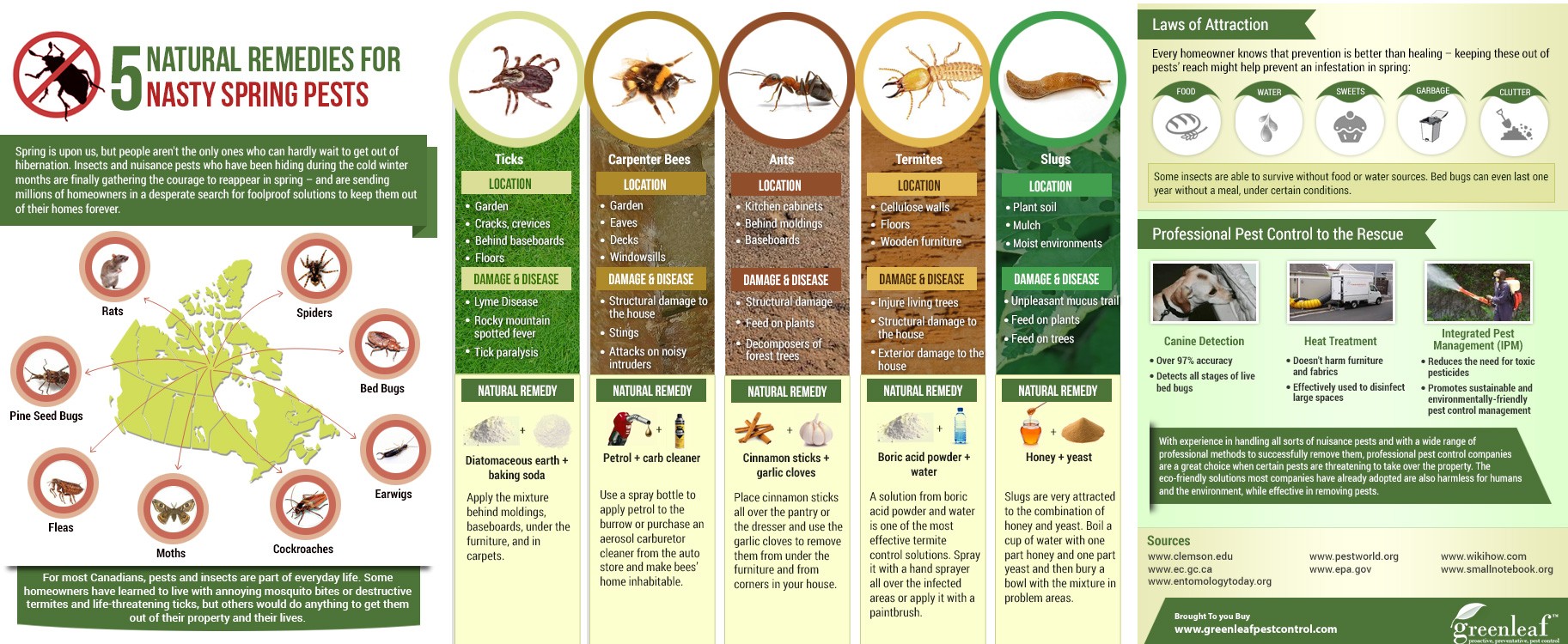Pest-Proofing Your Yard: Tips For Maintaining Outdoor Pests Away
Pest-Proofing Your Yard: Tips For Maintaining Outdoor Pests Away
Blog Article
Web Content Written By-Walters Fyhn
Visualize your yard as a sanctuary, a location of tranquility and beauty. Nonetheless, the visibility of outdoor parasites can quickly disrupt this ideal photo. Suppose there were simple yet efficient means to keep these unwanted visitors away and safeguard your garden oasis? By following effective mosquito control of functional suggestions and implementing all-natural strategies, you can create a harmonious exterior room where your plants can grow uninterrupted.
Natural Parasite Deterrents
To keep insects away from your garden normally, plant aromatic herbs like mint and lavender. These great smelling plants not only include elegance to your yard however additionally function as efficient insect deterrents. Parasites like insects, flies, and also some garden-damaging pests are fended off by the solid aromas discharged by these herbs. Simply placing them purposefully around your garden can help create an all-natural barrier against undesirable insects.
Along with mint and lavender, think about planting other herbs like rosemary, basil, and lemongrass to even more enhance your yard's pest-proofing abilities. These herbs not only work as all-natural repellents however also have actually the added advantage of serving in cooking or crafting home made remedies.
Strategic Plant Placement
Think about the format of your garden and the kinds of plants you need to strategically put them for maximum pest-proofing efficiency.
Beginning by organizing plants with comparable resistance to parasites with each other. By doing this, you can produce a natural barrier that hinders parasites from spreading throughout your yard.
Additionally, putting pest-repelling plants like marigolds, lavender, or mint near more vulnerable plants can help secure them. best ant and roach killer , such as sunflowers or corn, can act as a shield for shorter plants against bugs like rabbits or ground-dwelling bugs.
Keep in mind to leave sufficient space between plants to boost air flow and decrease the danger of diseases that pests may carry.
Moreover, take into consideration planting strong-smelling herbs like rosemary or basil near susceptible plants to perplex pests' detects and make it harder for them to locate their targets.
Effective Parasite Control Techniques
For combating yard pests properly, carrying out a multi-faceted insect control technique is crucial. Begin by motivating all-natural predators like birds, ladybugs, and hoping mantises to assist keep insect populations in check. Introducing plants that draw in these beneficial bugs can help in pest control. Furthermore, practicing great yard hygiene by eliminating particles and weeds where insects may hide can make your yard less congenial to undesirable site visitors.
Take into consideration using physical obstacles such as row cover fabrics or netting to protect prone plants from parasites like caterpillars and birds. Using organic chemicals like neem oil or insecticidal soap can additionally work versus certain parasites while being less hazardous to beneficial pests and the atmosphere. It's vital to turn your crops each period to avoid the accumulation of insect populations that target specific plants.
Frequently evaluate your plants for indicators of insect damage so you can do something about it immediately. By combining https://www.businesswire.com/news/home/20130610006349/en/Don%E2%80%99t-Let-Carpenter-Ants-Spoil-Your-Summer-Expert-Tips-for-Avoiding-America%E2%80%99s-1-Pest and staying vigilant, you can efficiently manage yard parasites and appreciate a thriving, pest-free garden.
Final thought
So, there you have it - with the best techniques, you can keep pesky outside insects away from your yard and aid your plants flourish.
Did you understand that growing mint has been revealed to drive away mosquitoes and various other pests, minimizing the demand for damaging pesticides by approximately 60%?
By integrating all-natural deterrents and wise growing strategies, you can create an attractive and pest-resistant garden oasis for you to take pleasure in.
